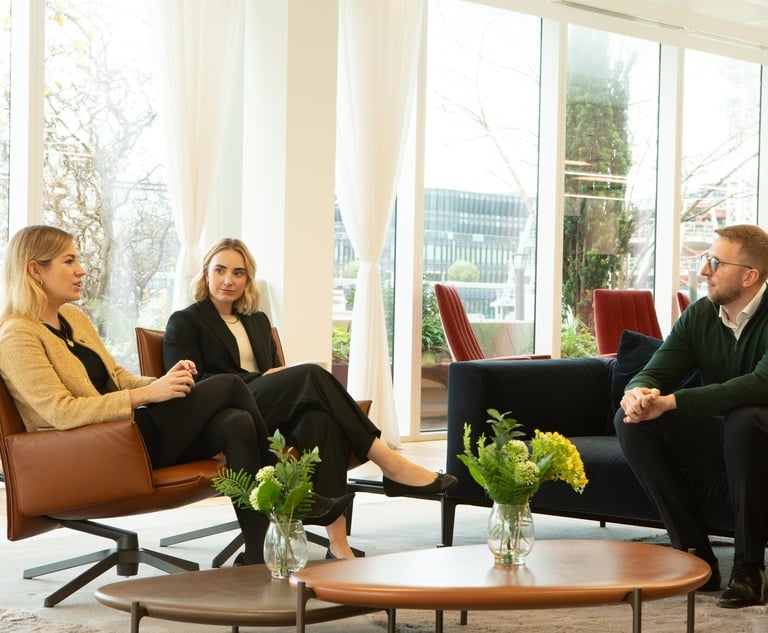Destination Africa: The Rise of Arbitration Across The Continent
Across Africa, there are encouraging signs that judiciaries and lawyers are starting to overcome negative perceptions of arbitration and embrace it, backed by strong support from national courts.
July 02, 2020 at 08:09 AM
6 minute read
 There are around 89 arbitration centers in Africa. But many still rely on the more well-known international hubs outside of the continent. Credit: Shutterstock
There are around 89 arbitration centers in Africa. But many still rely on the more well-known international hubs outside of the continent. Credit: Shutterstock
As Africa's nations continue to develop, there has been a tendency for lawyers and judiciaries to cleave to tradition when resolving disputes. But, still a relatively new concept, the continent is gradually embracing the practice of arbitration.
"The overarching, exciting thing about Africa is the growing attention to and efforts being made to increase expertise in international arbitration and counseling," said Naana Frimpong, counsel at King & Spalding in Atlanta, Georgia. "There is also a surge in arbitration centers emerging across the continent."
As of March 20 this year, there were a total of 89 arbitration centers in Africa, with multiple centers in a number of countries, according to the latest list compiled by university lecturers Dr Emilia Onyema and Sopuruchi Christian.
Yet international arbitration, even with an African element, has traditionally been administered under the aegis of western institutions such as the London Court of International Arbitration.
"A free market cannot exist without an African relevant continental dispute resolution and arbitration process and justice system."
Of the 54 members of the African Union (AU), at least 30 now have modern legislation for international arbitration, says Des Williams, director and head of arbitration at Werksmans Attorneys in Johannesburg.
The long overdue reform of South Africa's 1965 arbitration legislation finally arrived in December 2017 in the form of the International Arbitration Act.
"The act incorporates the United Nations Commission of International Trade Law (UNCITRAL) Model Law," said Williams.
He said it took South Africa so long to reach this point, largely due to negative perceptions of arbitration in some quarters, although this attitude has changed over the past 10 years.
There has been strong support from the courts for arbitration "and our courts recognize the principle of party autonomy and the importance of restricting court interference in arbitration," said Williams.
A Unified Approach
The problem is that Africa's various arbitration centers operate in isolation, with their own regulations and jurisprudence, said Michael Kuper, South African advocate and chairman of the China-Africa Joint Arbitration Centre (CAJAC).
CAJAC is a subsidiary of the Arbitration Foundation of Southern Africa (AFSA).
"It is my belief that a unified approach is needed to bring all the centers together under one set of standardized practices and legislation."
Kuper maintains that the essential requirements of unification of China-Africa arbitration include a shared constitution, shared rules, standard jurisprudence, and eventually the same panel of approved arbitrators.
"The idea is to have a panel of high-standard, neutral, non-African, non-Chinese arbitrators who are available to all the centers," he said.
Mauritius has one of the most sophisticated jurisdictions for arbitatration in Africa, said Dev Erriah, barrister at law at Gray's Inn, Port Louis.
"Our arbitration center was set up in 2008 and is based on U.K. law, which is favoured by investors."
"The exciting thing about Africa is the growing attention to and efforts being made to increase expertise in international arbitration."
He suggests that arbitration has only started to catch on in the past 10 years in Africa and there is still a tendency to rely on the courts to resolve disputes.
"But with globalisation it is important to adopt international norms."
Kenya's 2010 constitution led to court assisted mediation, as an almost obligatory initial stage in complex dispute resolution, said Fred Ojiambo, senior partner at Kaplan & Stratton, based in the capital Niarobi.
"In addition, it allowed the courts to strongly advise, (read 'compel') parties to seek arbitration, instead of insisting on resolving their dispute through the courts."
The courts are aware that their processes are often slow and cumbersome, and can end up in a 'winner takes all' scenario that a system of mediation would frown upon, he said.
Alloys Mutabingwa, founder and chairperson of law firm Aims Capital in Kingali, Rwanda, said arbitration can be less costly than taking a dispute to court.
"Even if the ruling is favourable, the court may award less than has been claimed."
Free Trade
Mutabingwa said one of the issues in Africa is that vital aspects of the dispute resolution and arbitration component of the African Continental Free Trade Zone Agreement (AfCFTA) which the African Union is promoting so hard are missing from the protocol.
"They have copied and pasted the arbitration component of the World Trade Organisation (WTO) into the AfCFTA framework, but it cannot be applied in Africa."
Something needs to be done about this, because an African-relevant arbitration instrument is essential to cross-border trade and investment, said Mutabingwa.
"A free market cannot exist without an African relevant continental dispute resolution and arbitration process and justice system."
Mutabingwa is producing a paper outlining what needs to be done about this, which he intends to submit for consideration.
"With globalisation it is important to adopt international norms."
Uganda established its Centre for Arbitration and Dispute Resolution (CADER) in 1998. But two decades later in 2018 the outcome of an arbitration it handled was questioned.
It then came to light that the center did not have a governing council, as required by the act by which it was set up, said Jacqueline Lule, partner at Bowmans Uganda.
"This put in doubt all past and current arbitrations handled by the centre."
In the same year, the International Centre of Arbitration & Mediation of Kampala (ICAMEK) was set up as a private NGO in collaboration between the Law Society, the Uganda Bankers Association and others.
"The minister subsequently appointed ICAMEK as the country's official arbitration centre in June 2019," said Lule.
All in all, the positive signs of progress with arbitration across Africa bode well for the future of the continent in bringing it closer to global norms, and reflect a strong will to move in this direction.
Read more
This content has been archived. It is available through our partners, LexisNexis® and Bloomberg Law.
To view this content, please continue to their sites.
Not a Lexis Subscriber?
Subscribe Now
Not a Bloomberg Law Subscriber?
Subscribe Now
NOT FOR REPRINT
© 2025 ALM Global, LLC, All Rights Reserved. Request academic re-use from www.copyright.com. All other uses, submit a request to [email protected]. For more information visit Asset & Logo Licensing.
You Might Like
View All
Paul Weiss Says Progress Means 'Embracing the Uncomfortable Reality'
5 minute read

GCs Say They are Getting 'Edged Out' of UK Boardrooms
Law Firms Mentioned
Trending Stories
- 1Defending Against a $290M Claim and Scoring a $116M Win in Del. Drug Patent Fight
- 2Jury Awards $6.2 Million in Walmart Slip & Fall
- 3'If the Job Is Better, You Get Better': Chief District Judge Discusses Overcoming Negative Perceptions During Q&A
- 4Nondisparagement Clauses in Divorce: Balancing Family Harmony and Free Speech
- 5Survey Finds Majority of Legal Professionals Still Intimidated by AI Despite Need to Streamline Mounting Caseloads
Who Got The Work
J. Brugh Lower of Gibbons has entered an appearance for industrial equipment supplier Devco Corporation in a pending trademark infringement lawsuit. The suit, accusing the defendant of selling knock-off Graco products, was filed Dec. 18 in New Jersey District Court by Rivkin Radler on behalf of Graco Inc. and Graco Minnesota. The case, assigned to U.S. District Judge Zahid N. Quraishi, is 3:24-cv-11294, Graco Inc. et al v. Devco Corporation.
Who Got The Work
Rebecca Maller-Stein and Kent A. Yalowitz of Arnold & Porter Kaye Scholer have entered their appearances for Hanaco Venture Capital and its executives, Lior Prosor and David Frankel, in a pending securities lawsuit. The action, filed on Dec. 24 in New York Southern District Court by Zell, Aron & Co. on behalf of Goldeneye Advisors, accuses the defendants of negligently and fraudulently managing the plaintiff's $1 million investment. The case, assigned to U.S. District Judge Vernon S. Broderick, is 1:24-cv-09918, Goldeneye Advisors, LLC v. Hanaco Venture Capital, Ltd. et al.
Who Got The Work
Attorneys from A&O Shearman has stepped in as defense counsel for Toronto-Dominion Bank and other defendants in a pending securities class action. The suit, filed Dec. 11 in New York Southern District Court by Bleichmar Fonti & Auld, accuses the defendants of concealing the bank's 'pervasive' deficiencies in regards to its compliance with the Bank Secrecy Act and the quality of its anti-money laundering controls. The case, assigned to U.S. District Judge Arun Subramanian, is 1:24-cv-09445, Gonzalez v. The Toronto-Dominion Bank et al.
Who Got The Work
Crown Castle International, a Pennsylvania company providing shared communications infrastructure, has turned to Luke D. Wolf of Gordon Rees Scully Mansukhani to fend off a pending breach-of-contract lawsuit. The court action, filed Nov. 25 in Michigan Eastern District Court by Hooper Hathaway PC on behalf of The Town Residences LLC, accuses Crown Castle of failing to transfer approximately $30,000 in utility payments from T-Mobile in breach of a roof-top lease and assignment agreement. The case, assigned to U.S. District Judge Susan K. Declercq, is 2:24-cv-13131, The Town Residences LLC v. T-Mobile US, Inc. et al.
Who Got The Work
Wilfred P. Coronato and Daniel M. Schwartz of McCarter & English have stepped in as defense counsel to Electrolux Home Products Inc. in a pending product liability lawsuit. The court action, filed Nov. 26 in New York Eastern District Court by Poulos Lopiccolo PC and Nagel Rice LLP on behalf of David Stern, alleges that the defendant's refrigerators’ drawers and shelving repeatedly break and fall apart within months after purchase. The case, assigned to U.S. District Judge Joan M. Azrack, is 2:24-cv-08204, Stern v. Electrolux Home Products, Inc.
Featured Firms
Law Offices of Gary Martin Hays & Associates, P.C.
(470) 294-1674
Law Offices of Mark E. Salomone
(857) 444-6468
Smith & Hassler
(713) 739-1250









